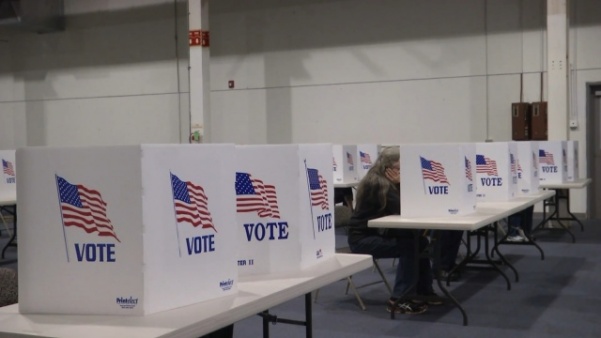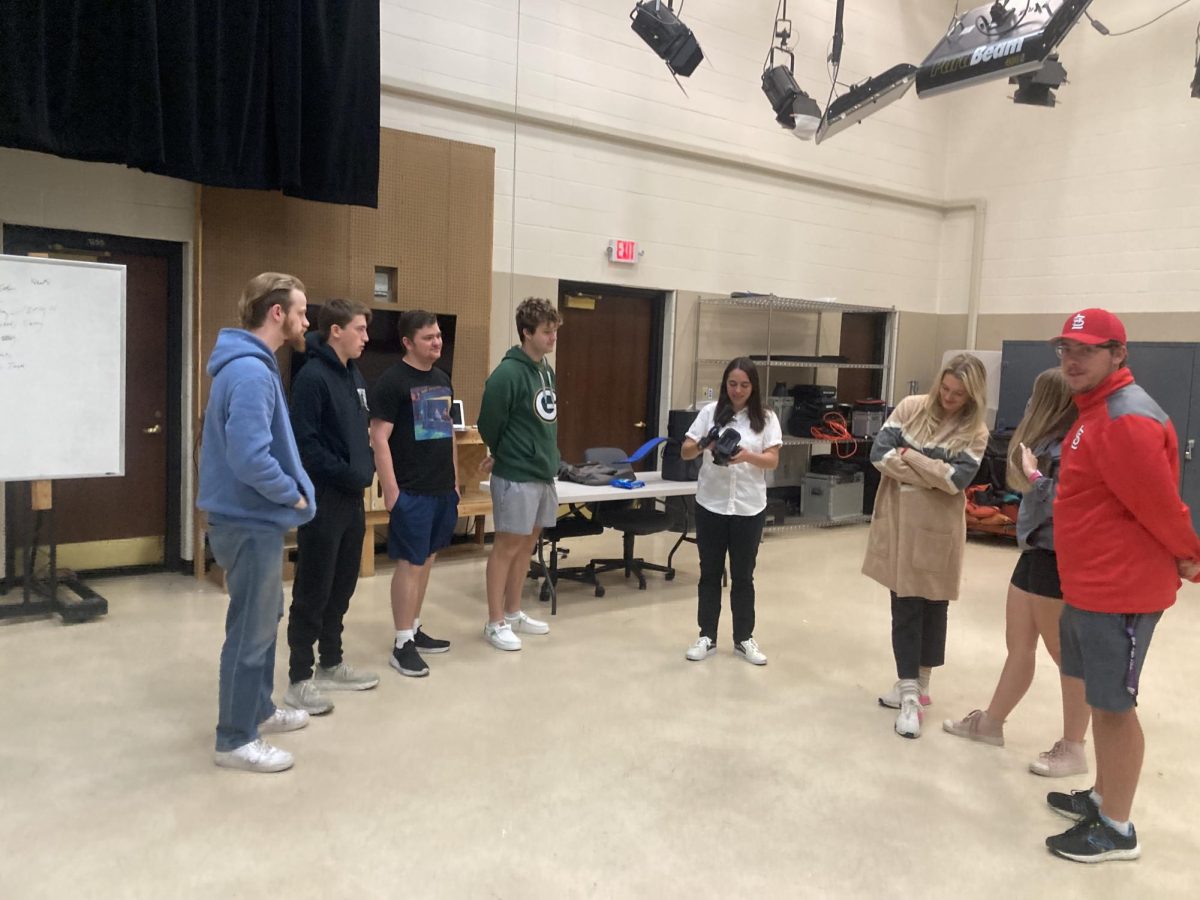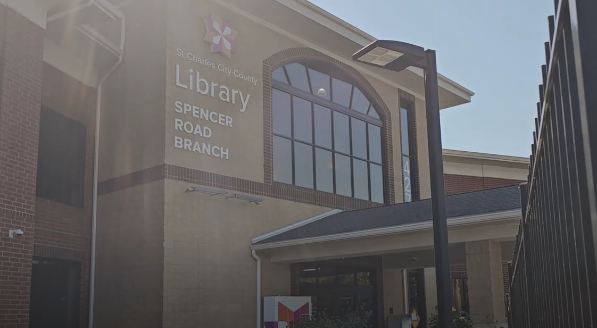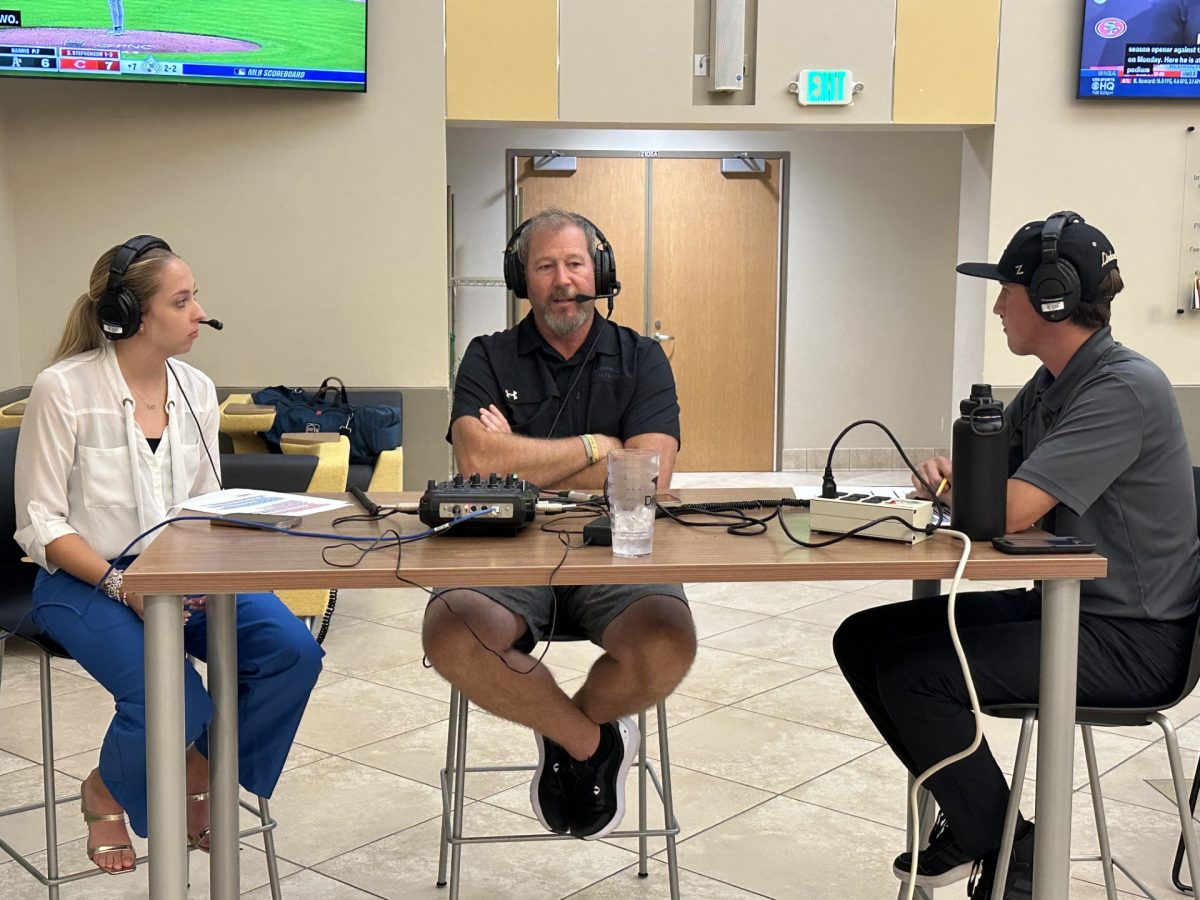KAYLA DRAKE | Multimedia Producer
Classes, work and social life consume most of a college student’s time, so with the Nov. 6 elections right around the corner, here are the biggest issues for St. Charles County voters.
Rich Chrismer, director of elections for St. Charles County, said this is the largest ballot he has seen in his 16 years in the position. He said he recommends voters look the issues up online before coming, because a fresh pair of eyes can take about 35 minutes to vote.
“I can’t imagine what Election Day will be like, because phones do ring off the hook on Election Day, but they’ve been ringing off the hook for weeks now,” Chrismer said.
In total, for St. Charles County there will be four amendments and four propositions to vote on.
Amendments:
- 1: Clean Missouri, which addresses lobbying, redistricting and campaign financing.
- 2: Allowing medical marijuana use and allocating taxes to veterans’ programs.
- 3: Allowing medical marijuana use and allocating taxes to fund a state research institute.
- 4: Removing limits on bingo advertising and change requirements for bingo worker volunteers
Propositions:
- B: Increase the minimum wage to $8.60 an hour, with yearly increases until 2023, reaching $12 an hour.
- C: Allowing medical marijuana use and allocate taxes to veteran services, drug treatments, education and public safety.
- D: Increase motor gas tax by about 3 cents annually until 2022.
- Smoke Free with Exceptions: Ban smoking in public enclosed spaces and enclosed spaces of employment. The exception will be places where only 21 and over persons are allowed, such as casinos and private clubs.
Amendment 1 – Clean Missouri:
The amendment aims to limit lobbying, campaign financing and change the way Missouri is divided into electoral districts.
If approved, it will amend the Missouri Constitution’s current language on redistricting. The proposal would give the state auditor control over selecting a demographer and candidates in both the House and Senate to redistrict Missouri.
The incumbent State Auditor is Nicole Galloway, a Democrat. The position is up for election in the midterms, with Republican Saundra McDowell going against Galloway.
Currently, appointees from the Democratic and Republican parties create even commissions to determine the districts, and if they cannot agree, appellate judges are appointed.
This controversial amendment remained on the ballot despite several legal battles claiming “logrolling”, which is the bundling of unrelated subjects that would not generate as much support individually as they do when combined. Proposed amendments to the constitution should not “contain more than one subject,” according to Article XII of the Missouri Constitution.
Jonathan Dunlop, president of the Lindenwood University College Republicans Club, said he is voting no to the amendment because he does not want one partisan official to control the redistricting of the state.
“While I support increased transparency and campaign finance reform, I cannot support giving any single elected official, regardless of party, the power to appoint a commission to redistrict the entire state,” he said.
Clean Missouri includes language that requires the demographer to draw districts as equal as possible for both parties. The new map cannot be drawn “with the intent or result of denying or abridging the equal opportunity of racial or language minorities to participate in the political process or diminishing their ability to elect representatives of their choice,” according to the Clean Missouri Act.
Besides the redistricting, the proposed amendment would extend the wait time for former politicians to become a lobbyist from six months to two years. Lobbyists are hired by companies to campaign for certain issues and influence elected official’s votes. Originally, Democrats drafted this proposal, but it has seen some GOP support.
Jessie Basler, president of the Lindenwood University Collegiate Democrats, said she is voting yes because officials should show where their money comes from.
“The issue is that Missouri has very lenient laws about campaign financing, which is why we have so much corruption in Congress,” she said. “People can literally buy seats and votes.”
The amendment would drastically limit the gifts lobbyists can give to elected officials. It would also lower the amount of campaign donations allowed and require state officials to abide by the open-records law, making legislative records open to the public.
Marijuana legislation:
The three marijuana initiatives all will legalize its use for medicinal purposes. The tricky thing is recognizing the differences, which are the tax rates, where the money is allocated and how it would be regulated.
Amendment 2:
- A 4 percent tax on the retail sales of marijuana. The taxes will go to support the health of military veterans and be used by the Department of Health and Senior Services to create a program for licensing and regulating marijuana facilities.
- Creates procedures for dispensary and cultivation within marijuana facilities.
- Estimated to generate $18 million for state operating costs and veterans program and $6 million for local governments. Operating costs are expected to be $7 million annually for the state.
Amendment 3:
- A 15 percent tax on the retail sales of marijuana and wholesale amount of dry marijuana flowers and leaves sold to facilities.
- The money would be used to fund a state research institute to develop cures and treatments for cancer and other incurable diseases.
- Estimated to generate $66 million annually. Annual operating costs for the state is estimated to be $500,000 annually.
Basler said Amendment 3 follows the coattails of Amendment 2 as a “sneaky way to get money for a corporation.”
“It’s a tricky thing because it’s higher taxes on the medical marijuana, but the tax revenue would go into biomedical research and drug development institutes, which is actually a private organization,” she said.
Proposition C:
- A 2 percent tax on the retail sale of medical marijuana.
- Funds from the tax revenue will be allocated to veterans’ services, drug treatment, early childhood education and public safety in cities where the initiative is passed.
- Initial state cost of $2.6 million and $10 million annual cost. Annual state revenue estimated to be $10 million and $152,000 for local governments.
If all three initiatives pass, it is possible the decision where the allocation for taxes could be up to the courts, according to St. Louis Public Radio.
Amendment 4 – Bingo:
Whether you play bingo or have an elderly relative who does, it is a multi-million dollar industry in Missouri.
The amendment would:
- Remove the limits to bingo advertising that are currently in the Missouri Constitution.
- Remove the requirement for bingo workers to be with an organization for two years before volunteering to work the actual game.
This bill was drafted in response to the decline in bingo revenue and bingo halls over the last decade.
Proposition B – minimum wage:
The current minimum wage in Missouri is $7.85 an hour.
- If Proposition B is passed, the minimum wage will increase to $8.60.
- Each year, it would increase by 85 cents an hour until 2023, when it would be $12 an hour.
- Government employees are exempt from the hourly wage increase.
- Penalties for employers paying workers under the minimum wage are increased.
The tax revenue estimated is vague, stating in the bill it could range from a $2.9 million decrease to a $214 million increase.
Dunlop said he is voting no because it would reduce the number of jobs for low-skilled workers.
“You’re shifting labor forces from the low-skill to the medium-skill, and if you have to pay the same amount to both, you’re going to hire the highest-skilled worker,” he said.
Proposition D – motor fuel tax:
Currently the motor fuel tax is 17 cents per gallon. The amendment will also increase the tax on alternative fuels (compressed natural gas, liquid natural gas and propane gas).
- A permanent 10-cent tax increase over four years (2.5 cents increase per year.)
- All Olympic athletes would be exempt from paying taxes on their prizes.
- Establish a freight bottleneck fund, which will pay for highway renovations more than $50 million.
- Tax revenue of $288 million annually to State Road Fund allocated to help law enforcement. Local governments would receive $123 million annually for road construction and maintenance.
Smoke Free with Exceptions:
St. Charles restaurants are known for allowing indoor smoking, and this bill aims to eliminate that.
- Prohibits smoking in enclosed public places.
- Prohibits smoking in enclosed spaces of employment.
- Exceptions are places where exclusively 21 and older persons are allowed, for example Ameristar Casino or a local club.
Chrismer, the county elections director, also clarified that the courts did not strike down the voter ID law, and a valid ID is still required. A state ID, passport or utility bill is accepted.
Dunlop said he recommends voters study the amendments and propositions beforehand.
“The devil’s in the details, and everyone should make an informed decision, instead of blindly going after partisan votes,” he said.
Basler said young people will be impacted whether they vote or not.
“You say you don’t want to get political, but this affects every aspect of your life, whether you like it or not,” she said.
Click here to find out your polling place’s location and hours.
Corrections: 5:51 p.m. Mon. 11/5 – Changes were made to clarify Jonathan Dunlop’s position on Amendment 1 and Proposition B.








